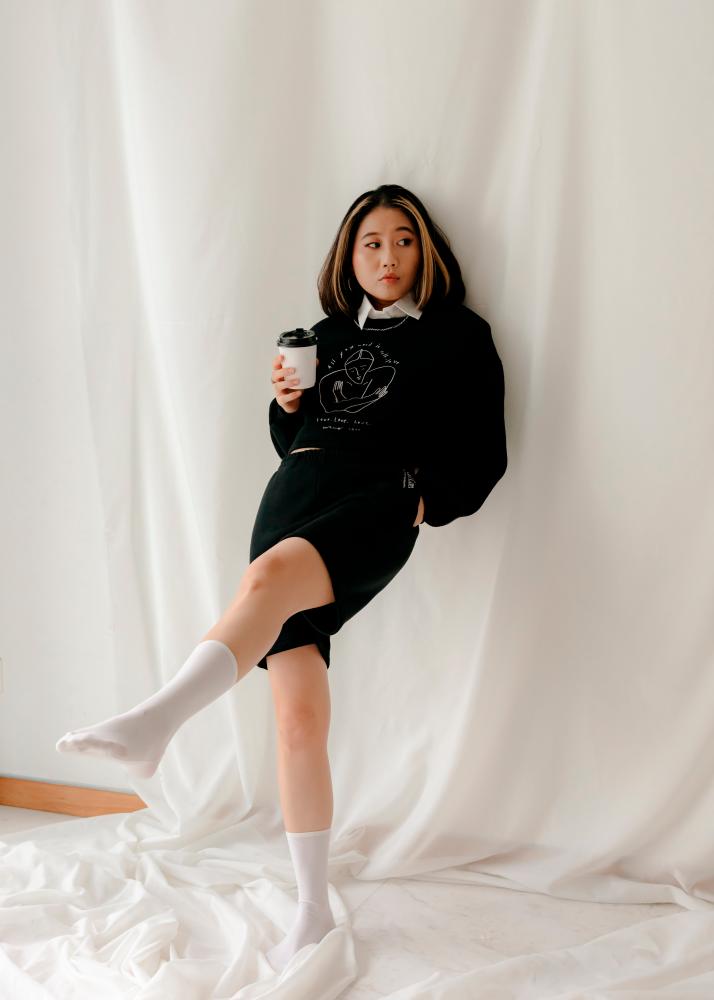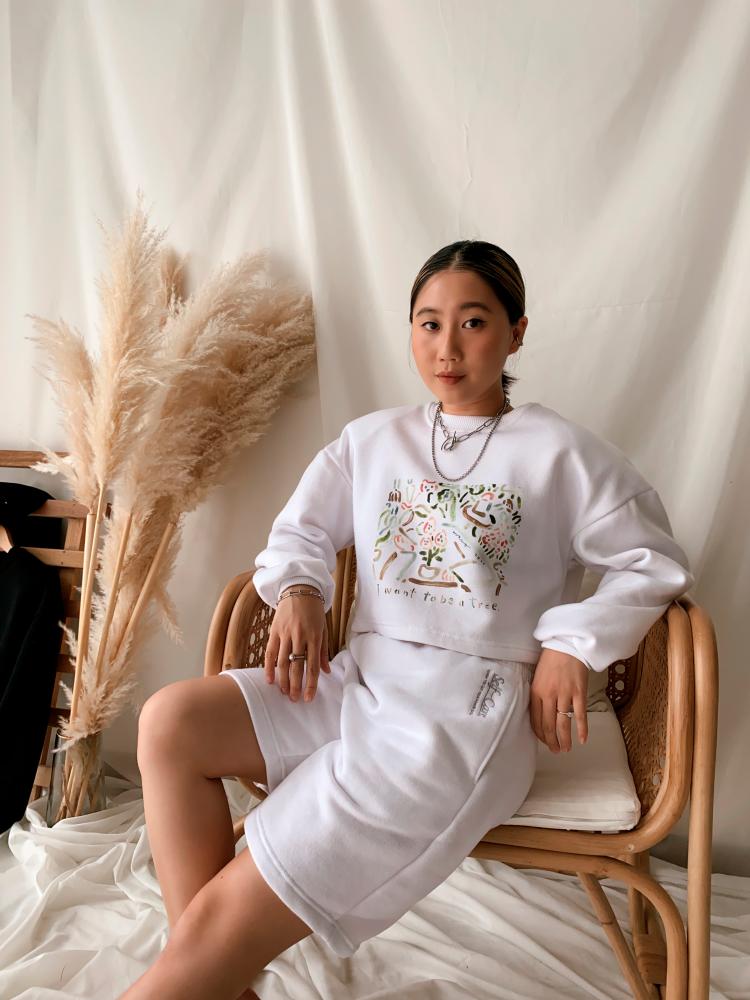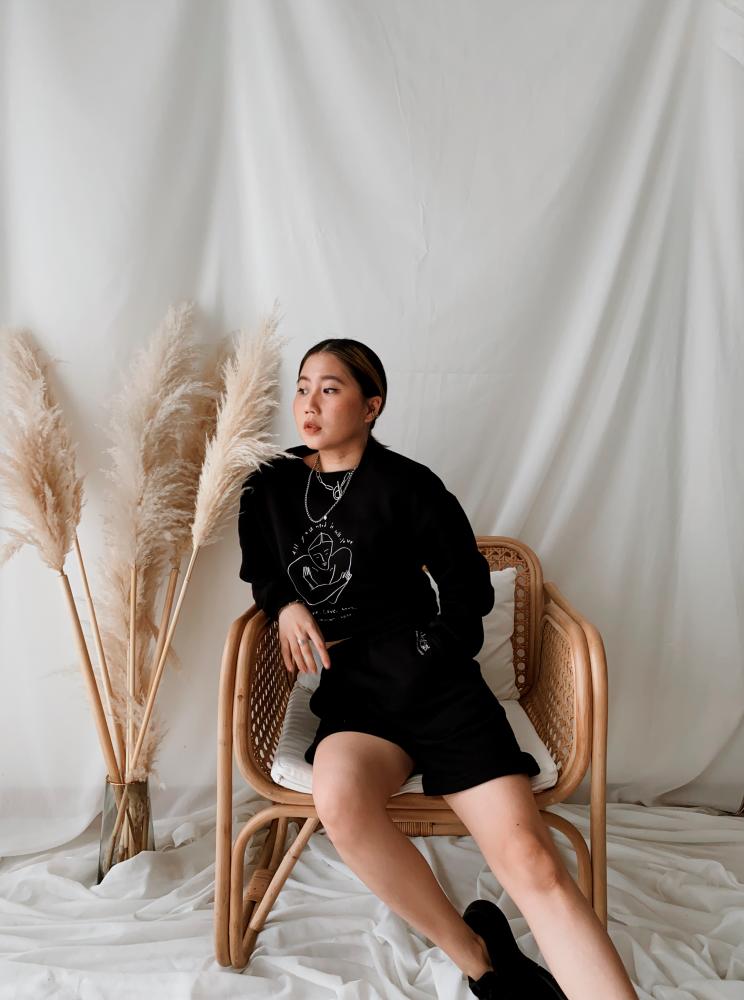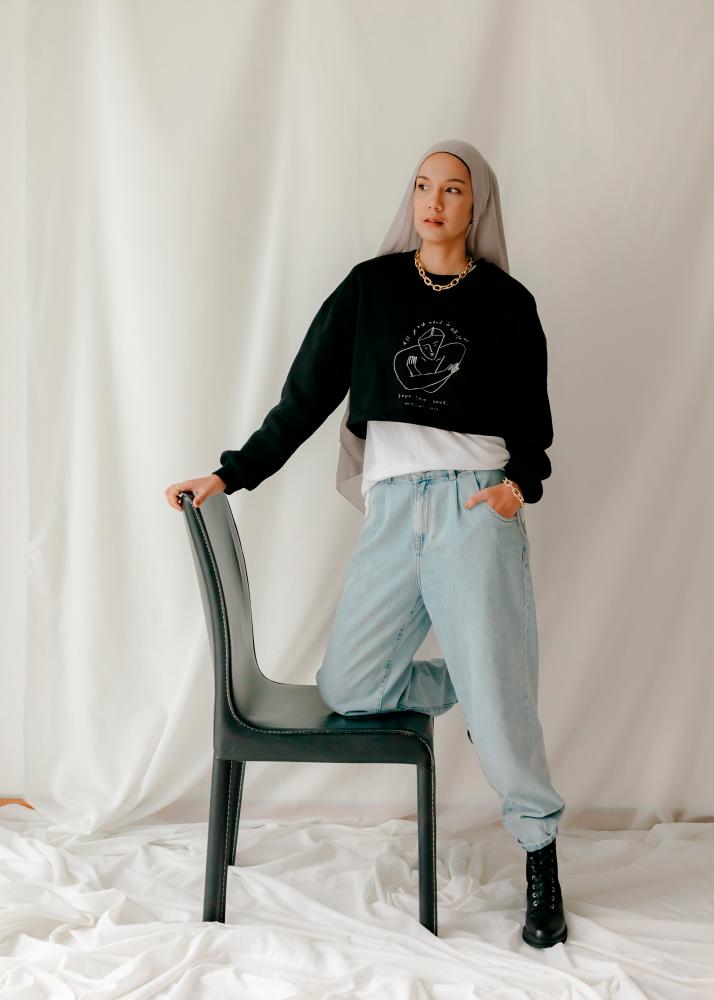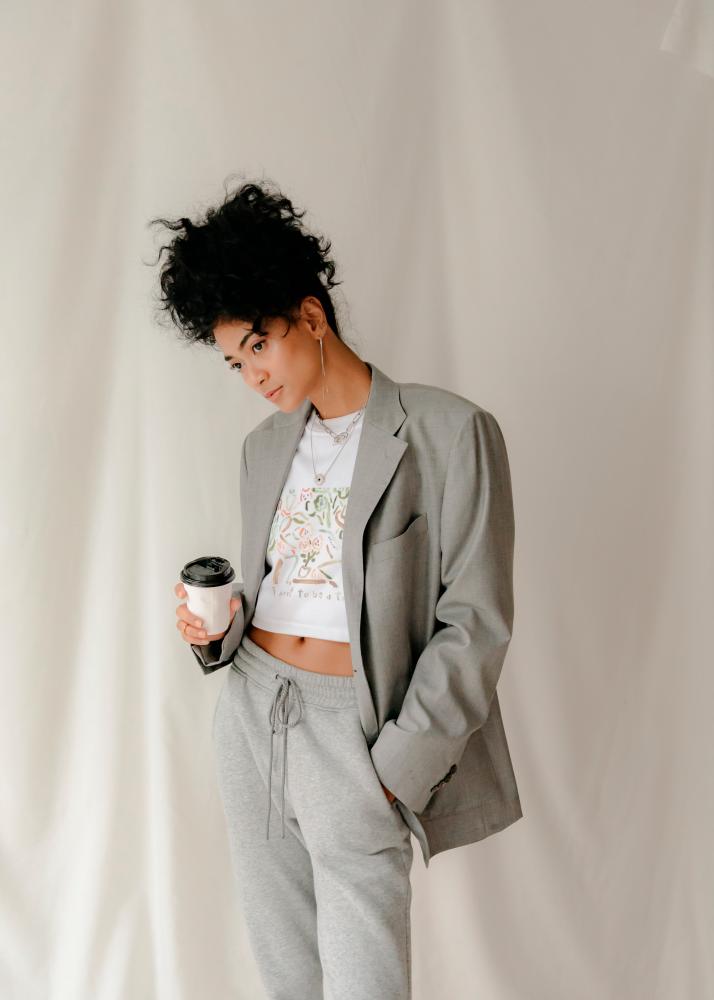AS AN advocate for women’s issues and mental health, Hanya founder Tan Veen Dee hopes to normalise the conversation around mental illness and break deep-seated stereotypes with its latest collection, Tiny Wins, in conjunction with Mental Health Awareness Day earlier this month.
Hanya collaborated with two artists who wanted to bring their individual mental health battles to light – Malaysian mixed media artist Nadia Nizamudin, who suffers from postpartum anxiety, and Bangkok-based painter-ceramist Worama Umpairat (better known by her pseudonym Mamolism) who struggles with depression.
Tan believes that self care is how a person gets his or her power back, whether through making art or surrounding oneself with house plants (as Tan herself does).
“As human beings, as mothers, as women, we selflessly give without a second thought, we empty our vessel and pour love out as if we have an unlimited supply. With this collection, Hanya is reminding our women tribe that we must fulfil our soul first, we must love ourselves first, and we must celebrate our own little wins first.”
Who is the Hanya girl?
“I’ve always envisioned the Hanya girl as an It-Girl, who’s neither humble nor arrogant. For this collection, I picture her living in a fancy apartment in the city, having a quiet moment as she soaks herself in the bathtub after a long day while overlooking the skyline and city lights; but she is crying, which is perfectly fine.
“I love the idea that a woman is able to pick herself up and go about her day and do what she needs to do. She allows herself moments of vulnerability, but still is able to wipe away her tears and carry on with her life, ready to face another day.
“For some, it’s an inconsequential moment, but to others struggling with mental health, this little win is monumental and I want to celebrate every achievement, even the tiniest accomplishments.”
Why do you think mental health is still such an unspoken social-cultural stereotype rarely discussed in society?
“Our parents, their parents, as well as the ones before them, didn’t have access to the right information about mental health. They didn’t know what postpartum anxiety nor depression was; they may have had it but they didn’t know what to do about it, thus it was easier to sweep under the carpet so as to not be seen as mentally deranged.
“Such was my parents’ perception of mental illness when I became sensitive and overwhelmed by a rollercoaster of emotions for months after giving birth to my first child. I’ve always dealt with small bouts of anxiety throughout my life but postpartum anxiety made it substantially worse.
“I finally broke down one day, and my dad asked me: ‘Why are you stressing everyone out? Why are you causing so much drama?’
“In fact, it was my parents who signed me up for therapy. Ever since then, my parents have been incredibly accepting and understanding, and I’m glad to be able to educate them and erase their negative perception on mental health. It’s not easy for children to change their parents’ mindsets because parents have always believed that they are in the right.”
What does mental clarity mean to you?
“Mental clarity means moments of solitary time where you’re able to have peace of mind.
“For me, it’s when I take care of my plants. It becomes almost like a temporal escapade, a self-care ritual that allows me to take my mind off things.”
Fashion is exhilarating and free for all, but it also projects some level of anxiety and paranoia. Can you speculate how fashion may affect our mental health?
“It’s a lot to do with the unrealistic body image and beauty standards. This might be a bit controversial, but because the archetypal beauty standards have been so heavily ingrained in our minds, that even when we say all sizes are beautiful, in reality, all women are still trying to fit into those more desirable standards.
“If women of certain sizes are presented with the choice of becoming fit and thin, I’m confident of saying the majority wouldn’t even think twice.
“It’s really years and decades of so-called brainwashing we’ve all been through, including myself, thinking of fitting into the normative ideals which shouldn’t be the case at all. This is also what I’ve been trying to achieve at Hanya – to be all-inclusive regardless of shape and size so that everyone feels comfortable with themselves; that is the normative ideal we strive for.”
You spoke highly of building a community in Hanya.
“Community lies at the heart of Hanya, it really is our driving force from both the customer and business perspective. It’s not just about the clothes, but also about creating content that is relatable to every woman, by providing support to help build and grow a wholesome community in the local scene.
“It gives tremendous satisfaction and brings such great meaning to me.”



